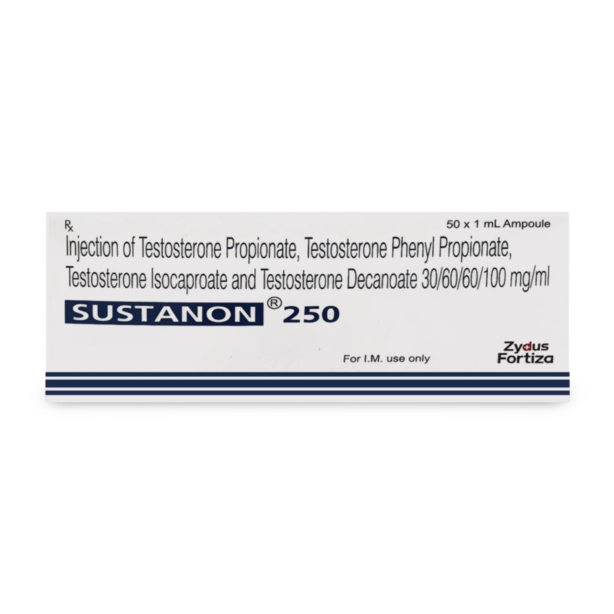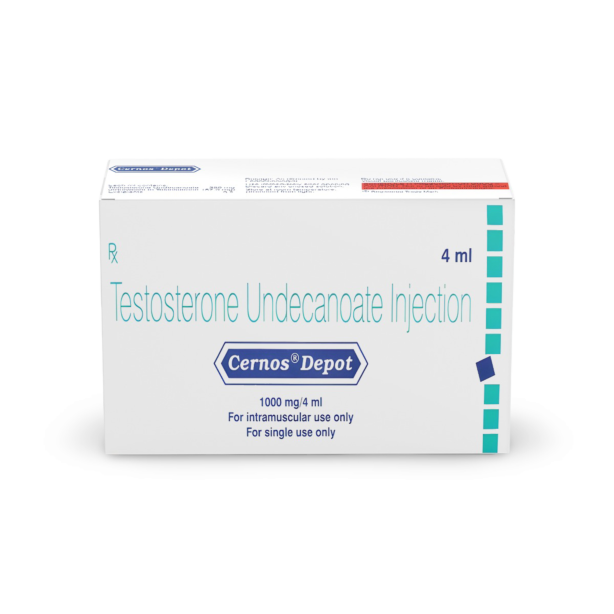When it comes to men’s sexual and general health, testosterone is considered the most important hormone.
Testosterone helps build muscles, boosts libido, and gives you more energy.
But did you know that your blood pressure can also be affected by testosterone?
In this article, we’ll discuss the link between testosterone and blood pressure and how they affect each other.
Connection between testosterone and blood pressure
The endothelium is a layer on the inside of blood vessels that aids in controlling the blood flow and size of the blood vessels.
Several studies suggest that low testosterone levels could cause the endothelial layer to grow, making the arteries thicker.
This increase in the thickness of the endothelium is directly linked to high blood pressure and a higher chance of heart disease.
| Endothelium: The endothelium is a thin layer of tissue that forms the lining of blood arteries and the heart. |
So, testosterone helps improve circulatory health by keeping the endothelium in good shape and ensuring blood flows well.
Testosterone also helps open the blood veins, causing them to relax.
When blood veins dilate, they let more blood through, thus lowering the blood pressure.
Therefore individuals with higher testosterone levels maintain healthy blood pressure levels.
Interested in finding out more about the benefits of high testosterone? Read our article: High Testosterone Benefits: Unlocking the Potential of Testosterone
Save up to 90% on your medicine bills

Cernos Gel 1% w/w

Cernos 40 mg Soft Gelatin Capsule

Sustanon 250 Injection

Cernos Depot 1000 mg Injection
What affects testosterone and blood pressure
 Source: tongwoongboot
Source: tongwoongbootLow testosterone may lead to increased arterial thickness, potentially raising blood pressure.
Some studies suggest that men with low testosterone levels are more likely to experience high blood pressure.
Low testosterone means thicker endothelial layer causing hindrance in the blood flow and thus raising the blood pressure.
Keeping a balance in testosterone levels is important for the health of your cardiovascular system.
This shows how complex the link is between hormones and controlling blood pressure.
Aging, Obesity, etc., are some factors that can affect this link between testosterone and blood pressure.
Let us take a deeper look at these factors
Age-related changes
As people age, their testosterone levels tend to drop.
As men get older, they may have less testosterone, which could be one reason their blood pressure increases.
But it’s important to remember that age-related Hypertension is also caused by other factors, like bad lifestyle choices or genetics.
Obesity
Obesity is a well-known factor for lowering testosterone levels and increasing blood pressure.
Excess body fat can cause hormonal imbalances, including reduced testosterone production, and strain the cardiovascular system.
A healthy diet and regular exercising might help tackle Obesity, thus improving testosterone and maintaining blood pressure.
Explore more about the cause of low testosterone in men? Read our article: Understanding What Causes Low Testosterone In Men
Conclusion
In conclusion, the link between testosterone and blood pressure helps us understand how hormones can impact our cardiovascular health.
Testosterone is often linked with vitality and masculinity. Testosterone helps maintain our blood vessels’ health and regulate blood flow.
Low testosterone levels may increase arterial thickness, leading to Hypertension and more risk of heart disease.
This shows how important it is to keep your hormones in balance for your general health.
Factors such as aging, Obesity, and lifestyle choices can influence the relationship between testosterone and blood pressure.

Frequently Asked Questions
How does testosterone impact blood pressure?
Testosterone influences blood pressure by enhancing blood vessels’ health, improving blood circulation, and causing blood vessels to relax. These factors can help maintain healthy blood pressure levels.
How can individuals manage this relationship for better cardiovascular health?
Lifestyle changes, such as regular exercising, a balanced diet, and stress management, can help maintain the relationship between testosterone and blood pressure. Also, doctor prescribed testosterone pills can also help a lot in maintaining the testosterone.
What are the factors that affect the connection between testosterone and blood pressure?
Factors such as aging, Obesity, and lifestyle choices can greatly impact the relationship between testosterone levels and blood pressure.
Can low testosterone levels enhance the risk of high blood pressure?
Some studies indicate that men with low testosterone levels may be at a greater risk of having high blood pressure due to the hormone’s impact on blood vessel efficiency.
What is the role of the endothelium in this relationship?
The endothelium, an inner layer of blood vessels, controls blood flow and vessel size. Studies suggest that lower testosterone levels may lead to the thickening of the endothelial layer, causing higher blood pressure.
When referencing outside resources, GoodrxMedicine always provides full citations. To learn more about the measures we use to maintain the quality of our content, please review our Content Information Policy.











